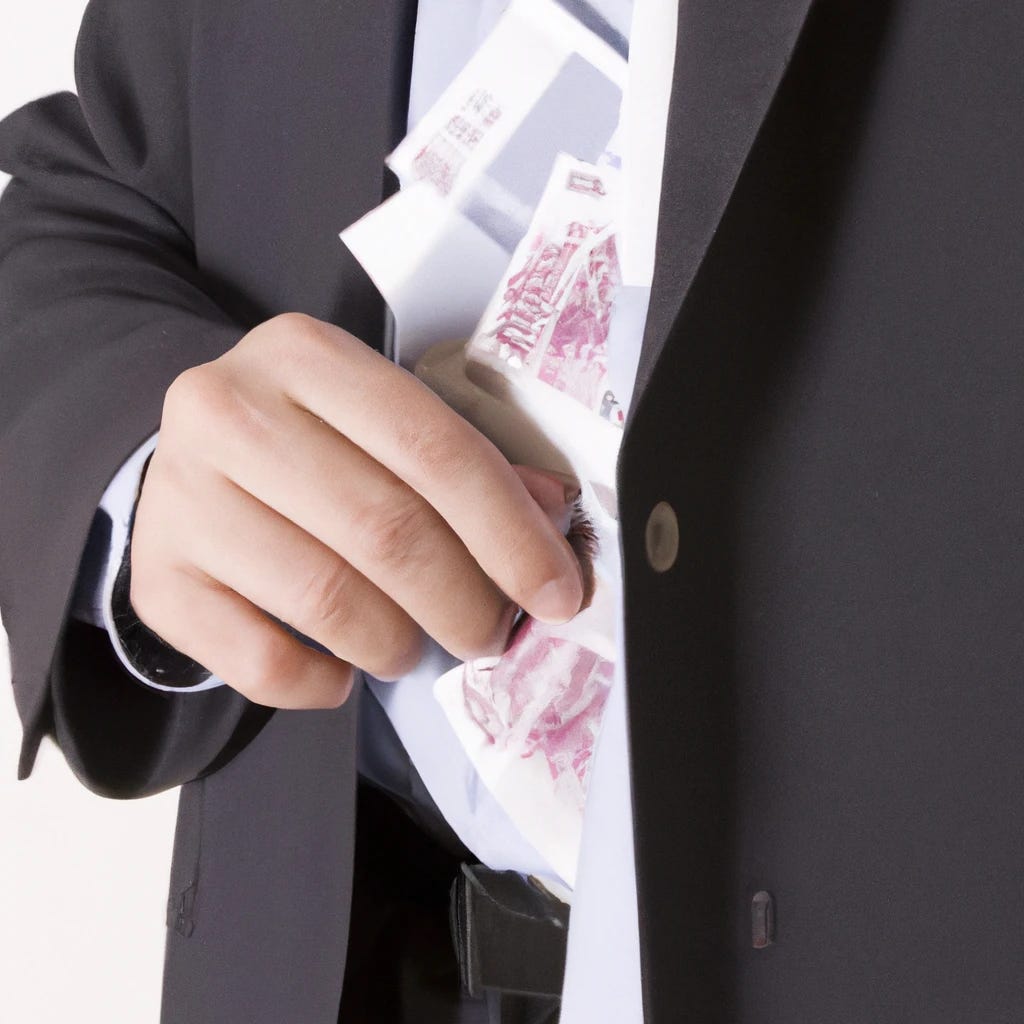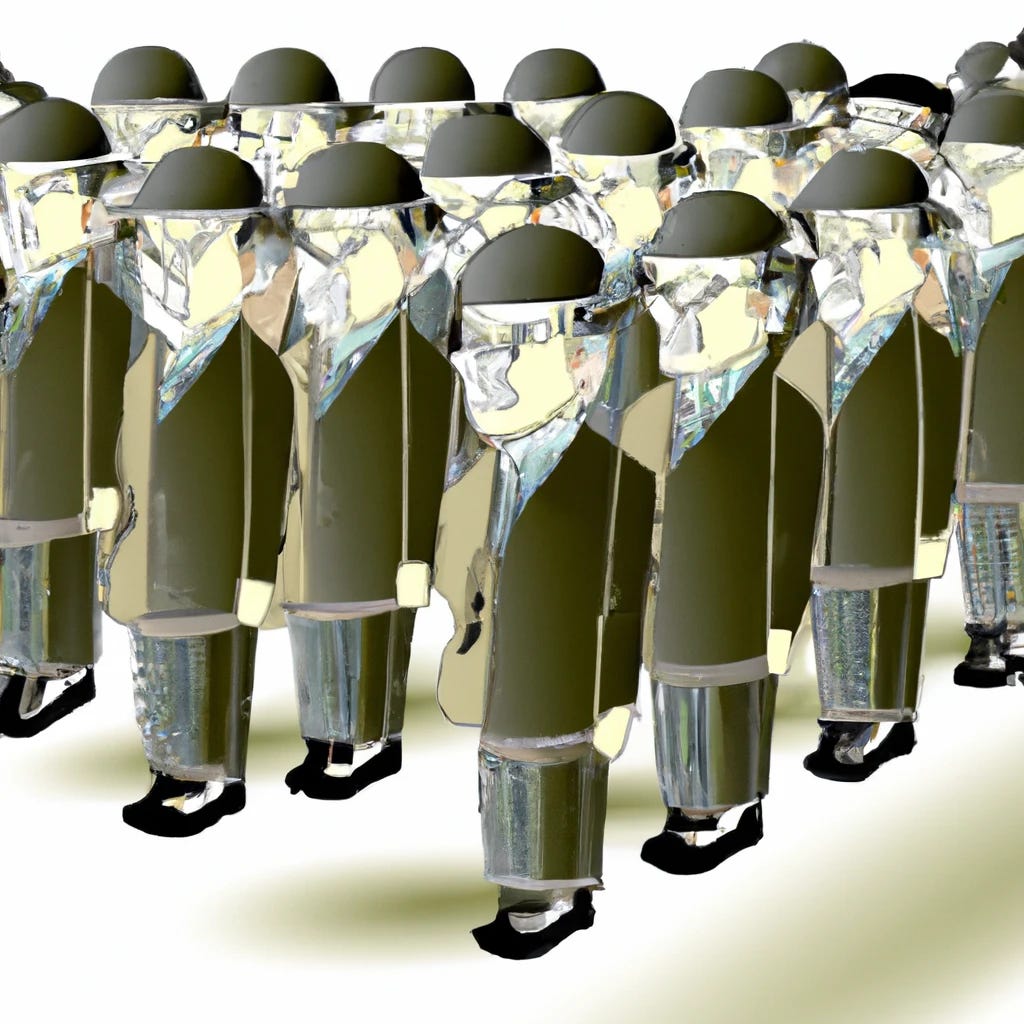Along with China and the United States, the European Union is one of the largest economies in the world. That is why there are tens of thousands of interest groups based in Brussels, whose job is to influence the EU’s bureaucratic regulators and politicians. For example, Brussels's total number of non-governmental organisations (NGOs) increased from 29 thousand in 2008 to just under 35 thousand in 2018.[i] It is likely that their numbers have continued to grow since 2018 and are gradually moving towards the 40 thousand mark.
There are also over 30,000 lobbyists working in Brussels, making this city the lobbying capital of the world.[ii] The Economist concluded last year that around 25,000 lobbyists with an annual budget conservatively estimated at more than €3bn ($3.6bn) sought to influence EU policy[iii]. The current corruption scandal involving MEPs and various other members of the EU bubble indicates there are also considerable sums of undeclared money available to influence MEPs and officials.[iv]
Brussels has become the lobbying capital of Europe. And with so many European national laws starting life at one of the offices of the EU, it is not difficult to understand why a veritable army of special interest groups spend millions of euros to influence the law-making process. Big corporations, industry lobby groups, lobby consultancies and law firms spend hundreds of millions of euros every year to ensure that they gain access to the key players in the EU bubble to influence their policymaking. And they do gain access! Since the start of their current term in 2019, EU Commissioners and their high-level staff have held a total of 14,397 meeting with lobbyists[v]. Cabinet Members of the Commissioners have attended a staggering 10,437 lobby meetings, with Commissioners participating in 3,474. When you add to this the number of unreported informal meetings, networking sessions, dinner parties and lunches it becomes evident that what we have is a symbiotic relationship between two supposedly highly differentiated groups.
Army. of lobbyist
For its part, the institutions of the EU work closely with special interest groups and rely on their supposed expertise to formulate policies and new regulations. NGOs are regarded as valuable partners in the decisions making process. International non-governmental organisations (INGOs) can apply for participatory status with the Council of Europe and become members of the Conference of INGOs.[vi] Many NGOs are recipients of EU funds. According to the report drafted by Markus Pieper, a German Christian Democrat MEP from the European People’s Party in 2015, NGOs received funding to the tune of €1.2 billion from the EU.[vii] Since 2015, the funding of NGOs by the EU has continued to increase. In 2020, the EU committed €14.5bn to support NGOs.[viii]
With so much money at stake, it is not surprising that the EU is prone to institutional corruption. Members of the European Parliament and the army of technocrats and bureaucrats working in the EU bubble are shielded from the kind of public gaze within national jurisdictions. In such circumstances, some of them find it difficult to resist the temptation of accepting the rewards offered by interest groups interested in influencing the outcome of EU decision-making. As the current corruption scandal indicates, nor are NGOs immune from accepting money from lobbyists.
One commentator writing for Politico delicately observed, ‘the Qatar scandal shows how the EU has a corruption problem’.[ix] That is something of an understatement. Experience has shown that corruption has been integral to the brand EU for decades.
Sarah Wheaton of Politico was right when she observed that the Qatar scandal was ‘inevitable’.[x] Though MEPs earn a gross salary of €9,400 a month, they can hold other jobs and consultancies. According to Transparency International, in 2021, 27 per cent of all MEPs topped up their parliamentary salaries with second or third outside jobs.[xi] The report shows that many MEPs earn more from their outside gigs than their parliamentary duties. Influential MEPs gain the most from the Brussels gravy train. Someone like the Polish MEP Radoslaw Sikorski – who had 12 external gigs – earned up to €804,000 a year.[xii]
The EU Parliament does not seem particularly bothered about recording MEPs' engagement with outside lobbyists. Wheaton reported that even ‘when MEPs are caught red-handed, nothing is likely to come of it’. She cited the case of a German MEP, Markus Ferber, who in 2018 wrote to CEOs promoting a financial product that allowed ‘companies to navigate financial rules he helped usher into EU law’.[xiii] The then-Parliament President Antonio Tajani ‘concluded that there is currently no violation of the Code of Conduct’.[xiv]
Corruption flourishes when no one is looking. Unfortunately, it seems that in the EU, no one is looking at what is happening in front of their eyes.
The current corruption scandal also highlights the interlocking of NGOs, EU parliamentarians, and decision-makers. The most interesting feature of the scandal surrounding the detention of the EU Parliament Vice-President Eva Kaili and politicians and EU apparatchiks is that they appeared to use an outwardly squeaky-clean NGO to launder the bribes that they received.
Eva Kaili
The NGO at the centre of the scandal is Fight Impunity. Like all NGOs, on paper, Fight Impunity looks purer then pure. Prominent leftist oligarchs were happy to associate themselves with an NGO advocating for a worthy cause. Understandably, when Fight Impunity was exposed as a money laundering racket, these oligarchs quit their roles as members of this NGO’s board. In the wake of allegations against the founder of Fight Impunity, Pier Antonio Panzeri – a former Italian MEP – a mass resignation of the board’s membership ensued. Former EU foreign policy chief Federica Mogherini, former French Prime Minister Bernard Cazeneuve, former European Migration Commissioner Dimitris Avramopoulos, and former MEP Cecilia Wikström – all listed as members of an ‘Honorary Board’ of Fight Impunity – quickly bailed.
The hypocrisy of the gang running Fight Impunity is breathtaking. This NGO presents itself as promoting accountability on the ground that it is ‘a central pillar of the architecture of international justice’. On its webpage, this NGO declares:
‘The aim of FIGHT IMPUNITY is built on the necessity to promote the fight against impunity for serious violations of human rights and crimes against humanity having the principle of accountability as a central pillar of the architecture of international justice. Although there are already a number of mechanisms at the international and regional levels to oversee the responsibility of states and individuals concerned and ensure accountability the violations committed, there is a crucial need to strengthen the actions and measures existing ones in order to increase their effectiveness.[xv]
Fight Impunity Logo
The NGO presents itself as a strongly committed human rights organisation. Its webpage states that ‘Human rights and the fight against impunity cannot and must not be topics to be locked away in the freezer’.[xvi]
If anyone investigated Fight Impunity, they would have swiftly realised that it was nothing more than a webpage, a paper organisation, which was best a public relations medium. Many high-profile politicians and aides associated with this NGO must have known that it was an empty shell designed to convince the public that it was genuinely doing good. The Belgian Socialist MEP, Marie Arena, who inherited the chairmanship of the subcommittee on human rights from Panzeri and who worked closely with Fight Impunity, must have known that something was wrong with this charity. Like her mates linked with this NGO, she stepped down as chair of the subcommittee on human rights. So too, Emma Bonino, a former liberal MEP and foreign affairs minister for Italy, was listed as an honorary board member of Fight Impunity.
Whatever the outcome of the police investigation into the corruption of the EU, it is evident that many of its leading lights were prepared to live with and benefit from a front organisation like Fight Impunity. It is difficult to avoid the conclusion that their commitment to human rights and transnational justice did not deter them from leveraging their position to gain financial benefits. Some will argue that this corruption scandal pertains to only a few bad apples. But as experience shows a rotten apple spoils the barrel.
The issue at stake is not merely the corrupt behaviour of an unknown number of public servants. Of far greater concern is the culture of entitlement that prevails in Brussels. The EU oligarchy and its courtiers act as if they are a ruling caste which is not accountable to the people. Its lack of restraint and willingness to treat with special interest groups speaks to its indifference to the public's opinion in their nation-states. Indifferent to the exigency of public service, their loyalty is to themselves and their pals within the EU bubble. As two academics,
Lorenzo Del Savio and Matteo Mameli observed; ‘international loci are in general physically, psychologically, and linguistically more distant from ordinary people than national ones are’. Consequently, this distance means more room for oligarchic capture’[xvii].
The well-known proverb 'power corrupts; absolute power corrupts absolutely' is relevant for capturing developments with the EU. Experience shows that when a person’s power increases without a regime of accountability, their moral sensibility diminishes.
Notes
[i] https://www.statista.com/statistics/886808/number-of-ngos-in-the-brussels-capital-region-belgium/
[ii] https://blogs.lse.ac.uk/politicsandpolicy/lobbying-in-brussels/
[iii] https://www.economist.com/business/2021/05/15/the-power-of-lobbyists-is-growing-in-brussels-and-berlin
[iv] https://www.telegraph.co.uk/world-news/2022/12/15/mep-immunity-laws-face-changes-qatar-corruption-scandal-uncovered/
[v] Transparency International EU - The global coalition against corruption in Brussels, https://www.transparency.org/en/gcb?gclid=CjwKCAiAkfucBhBBEiwAFjbkr-e8Lfwuwyh7HCdZW0ExzRdERsPuhnlvqCoFvIWC8JcrVSh7Uk06QhoCxzsQAvD_BwE
[vi][vi] https://www.coe.int/en/web/civil-society/what-role-for-non-governmental-organisations
[vii] https://www.euractiv.com/section/politics/news/parliament-report-opens-pandoras-box-of-eu-funded-ngos/
[viii] Financial Transparency System - Analyse (europa.eu)
[ix] https://www.politico.eu/article/european-union-qatargate-alberto-alemanno-scandal-corruption-corruption-problem/?utm_medium=social&utm_source=Twitter
[x] https://www.politico.eu/article/european-union-scandal-parliament-qatar/
[xi] https://transparency.eu/burning-candle-mep-income/
[xii] [xii] https://transparency.eu/burning-candle-mep-income/
[xiii] https://www.politico.eu/article/parliament-dismisses-conflict-of-interest-concerns-over-mep-ferber/
[xiv] https://www.politico.eu/article/european-union-scandal-parliament-qatar/
[xv] ://www.fightimpunity.com/what-we-do
[xvi] https://www.fightimpunity.com/post/presentation-of-the-report-the-state-of-impunity-in-the-world-2021-at-college-of-europe
[xvii] https://www.opendemocracy.net/en/can-europe-make-it/against-european-parliament/







